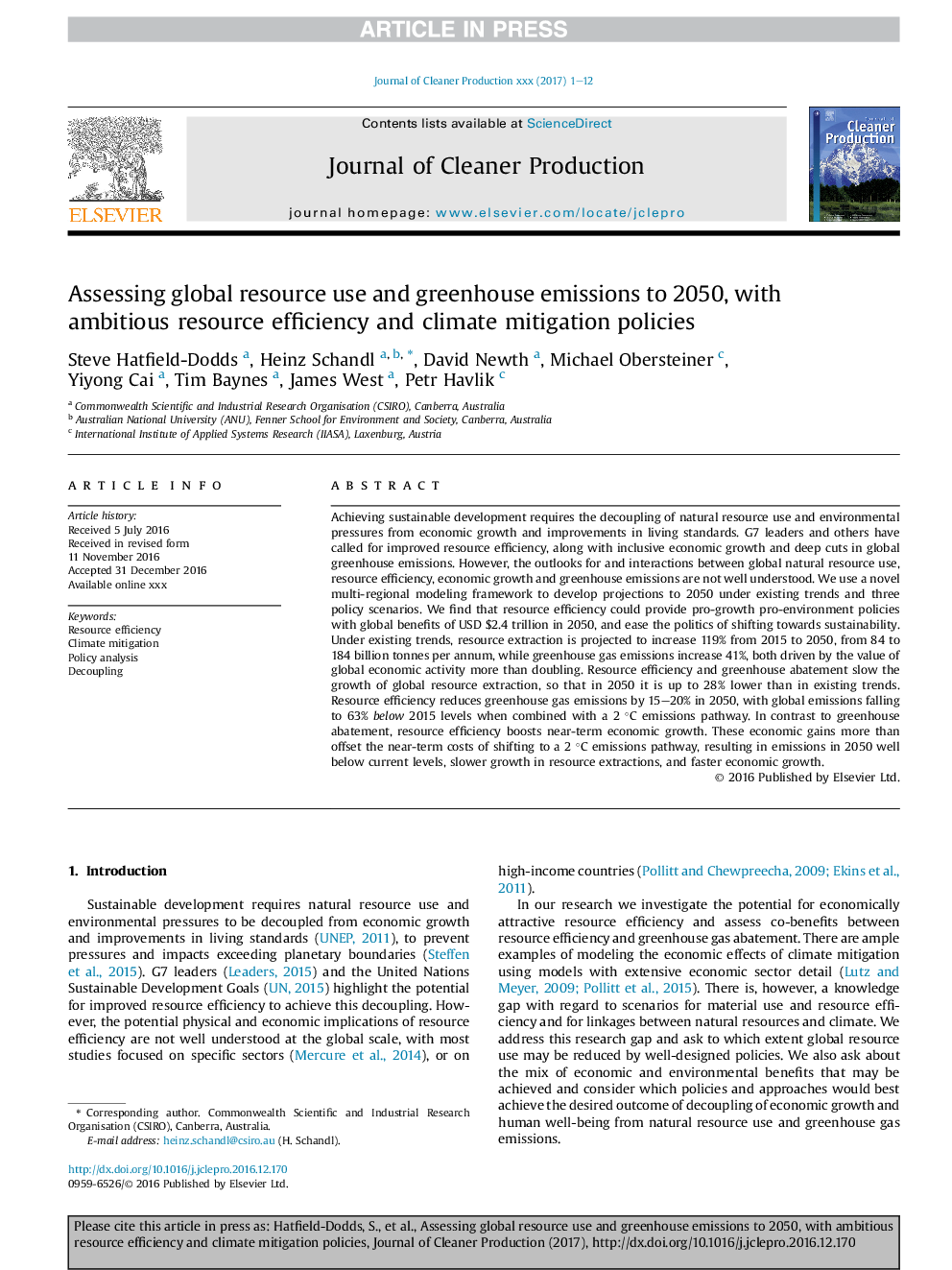ترجمه فارسی عنوان مقاله
ارزیابی استفاده از منابع جهانی و انتشار گازهای گلخانه ای تا سال 2050، با رفاه منابع انسانی بلند پروازانه و سیاست های کاهش آب و هوا
عنوان انگلیسی
Assessing global resource use and greenhouse emissions to 2050, with ambitious resource efficiency and climate mitigation policies
| کد مقاله | سال انتشار | تعداد صفحات مقاله انگلیسی |
|---|---|---|
| 105380 | 2017 | 12 صفحه PDF |
منبع

Publisher : Elsevier - Science Direct (الزویر - ساینس دایرکت)
Journal : Journal of Cleaner Production, Volume 144, 15 February 2017, Pages 403-414
ترجمه کلمات کلیدی
کارآیی منابع، کاهش آب و هوا، تجزیه و تحلیل سیاست، جدا کردن،
کلمات کلیدی انگلیسی
Resource efficiency; Climate mitigation; Policy analysis; Decoupling;

